Baseball History Comes Alive Now Ranked #2 by Feedspot Among All Internet Baseball History Websites and Blogs!
Guest Submissions from Our Readers Always Welcome!
Scroll Down to Read Today’s Essay
Subscribe to Baseball History Comes Alive for automatic updates. As a Free Bonus, you’ll get instant access to my Special Report: Gary’s Handy Dandy World Series Reference Guide!
1951 Giants and Dodgers Photo Gallery
Click on any image below to see photos in full size and to start Photo Gallery:
THE SHOT HEARD ‘ROUND THE WORLD (THAT ALMOST WASN’T)
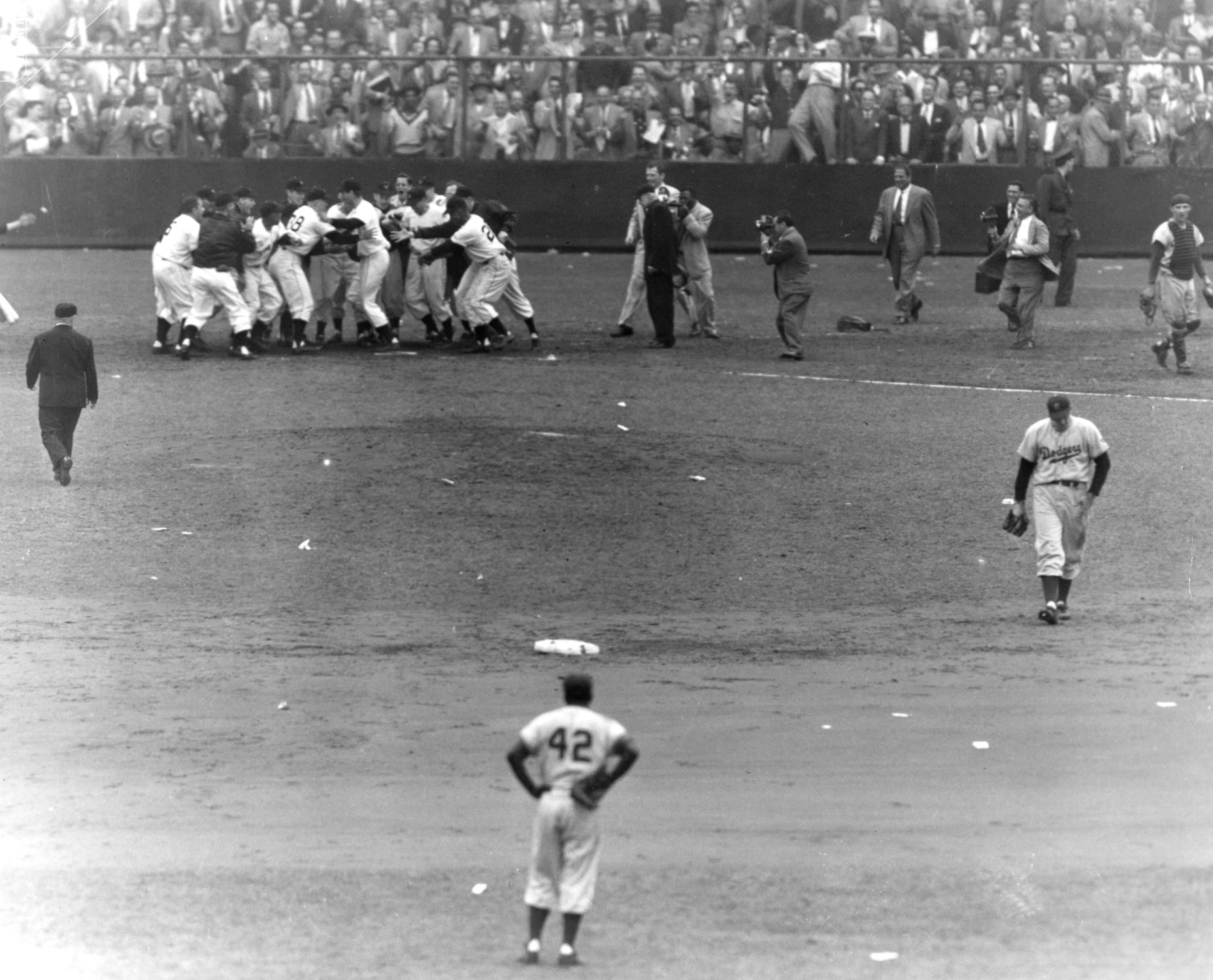
Let’s go directly to Shibe Park in Philadelphia, September 30, where the Dodgers faced the Phillies in the last regular season game of the ‘51 season. The day’s action began with both the Giants and Dodgers posting records of 95-58.
Preacher Roe started for Brooklyn, a scintillating 22-3 on the year, and was opposed by Bubba Church, a 15-game winner for the Phillies. Both the crafty left-hander and right-handed curveball artist were having their best seasons. But this was not to be either pitcher’s finest hour.
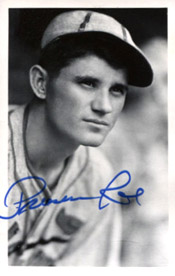
Roe was sent to the showers in the second inning, as Philadelphia jumped out to a 4-0 lead. The pennant-winning Whiz Kids of 1950 added two more and led 6-1 in the fourth. Brooklyn bounced Bubba the next inning and closed the gap to 6-5. But the “Fightin’ Phils,” sparked by a Bill “Swish” Nicholson triple, tallied two more and padded the lead to 8-5 at the end of five innings.
Now, the Brooklyns were watching the scoreboard intently. And, as the teams took the field for the sixth inning, the stark reality of the situation hit them right between the eyes: the Giants had beaten the Braves 3-2 behind Larry Jansen. My dad liked Longfellow’s observation, “Life is real! Life is earnest!” I doubt the Dodgers were thinking of Henry Wadsworth at the time but they knew if they didn’t get after it in a hurry the season would be over. The Jints were leading the National League now by a half-game!
Giants fans desperately did not want any part of those bruising guys who played ball southeast of the historic Gowanus Canal. I was one of those fans, never hating Dem Bums, but scared to death of that wrecking crew in a showdown series. If only the Phillies could hold on!
With one gone in the Dodgers’ eighth, Hodges and Cox singled and both came home on a Rube Walker double. Now it was 8-7 and manager Eddie Sawyer brought in his 21-game winner, Robin Roberts, to pitch to Carl Furillo. The Phil’s ace had pitched eight innings the day before in a 5-0 loss to Brooklyn and would log 315 innings that year. But it was no holds barred now. Furillo promptly cracked a single to left to plate pinch runner, Don Thompson, knotting the game at eight. Roberts settled in and retired the side.
Manager Charlie Dressen countered with his workhorse star, Don Newcombe, who had spun a seven-hit shutout only 24 hours earlier. The two 20-game winners held their opponents in check into extra innings, with Roberts retiring 10 consecutive Dodgers at one point. The tension mounted by the minute in the bottom of the 12th as Roberts, hitting for himself, led off with a walk. Eddie Pellagrini laid down a perfect sac bunt and Roberts was safe at second, with Pellagrini aboard at first. On a hit-and-run, always clutch Richie Ashburn lashed a bullet two-hopper to Gil Hodges, who made the unassisted putout at first base. With one out, both runners advanced to third and second, respectively. Willie “Puddin’ Head” Jones was walked intentionally to load the bases. Del Ennis struck out. The stage was set for the Dodger play of the season.
Jackie Saves the Day!
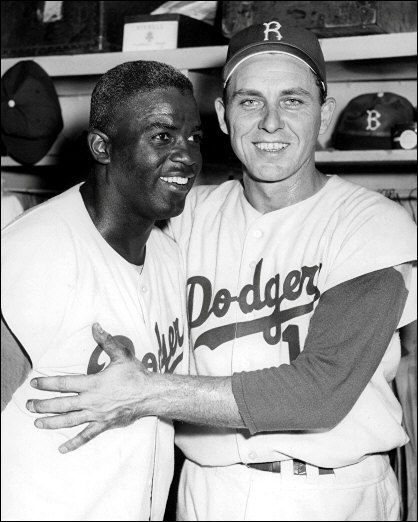
First baseman, Eddie Waitkus looped a humpback liner to the right of second, headed for center field—to apparently end the ballgame. But Robinson, although notoriously slow going to his right, dove headlong through the air reaching across his body with his glove hand, inches above the ground, landing hard on his right shoulder with the ball incredibly nestled in his glove! He rolled over and curiously tossed the laced spheroid toward second base, as if attempting to get a force play. (He lay motionless for minutes near the outfield grass before moving). Robin Roberts, running from third with the potential winning run, was certain Jackie had trapped the ball. But umpire, Lon Warneke, raised his right hand and called Waitkus out to end the inning. The Phillies bench erupted and screamed as one that the ball had been trapped and not caught cleanly.
Roberts was breezing as the game entered the 14th inning. Reese and Snider both popped out. Jackie Robinson, still in the game miraculously, stepped into the batter’s box and took a ball and a strike. Roberts then unleashed a high fastball on the inside part of the plate. Robinson smashed it into the upper deck in left field and Roberts had yielded his 20th home run of the season. Brooklyn 9, Philadelphia 8. Roy Campanella doubled but stayed at second.
“What did the umpire say?…”
In their last licks, Ashburn clipped Bud Podbielon for a single. However, the game ended as Waitkus lofted a soft fly to Andy Pafko in left field. But did Jackie Robinson really catch that Eddie Waitkus liner in the twelfth inning? The Phillies, to a man, claimed he did not. Roberts believed that Jack’s wild toss from a prone position toward second base showed that Robinson thought he had trapped the ball and was futilely trying for the force play at second. During the off-season, Robin spotted Jackie at a winter banquet. He said, “Jackie you didn’t catch the ball Waitkus hit.” Robinson grinned and asked, “What did the umpire say?”
Had there been instant replay back in the day, things might have been different. Instead of Bobby Thomson being the hero of a historic playoff series with two game-winning home runs—including, The Shot Heard ‘Round the World—he might be remembered as a good player who was part of a memorable pennant race and the only major leaguer to be born in Scotland.
Bill Schaefer
Sources: “Robinson saved the Dodgers,” author, C. Paul Rogers 111; Box Score, Phila., Brooklyn, 9/30/51; Sched almanac, 1951, Giants/Dodgers; Roberts, Church, Roe, baseball ref.com; Wikipedia: Brooklyn.
Subscribe to our website, “Baseball History Comes Alive” with over 1200 fully categorized baseball essays and photo galleries, now closing in on the one million hits mark with 922K hits and over 750 subscribers: www.baseballhistorycomesalive.com
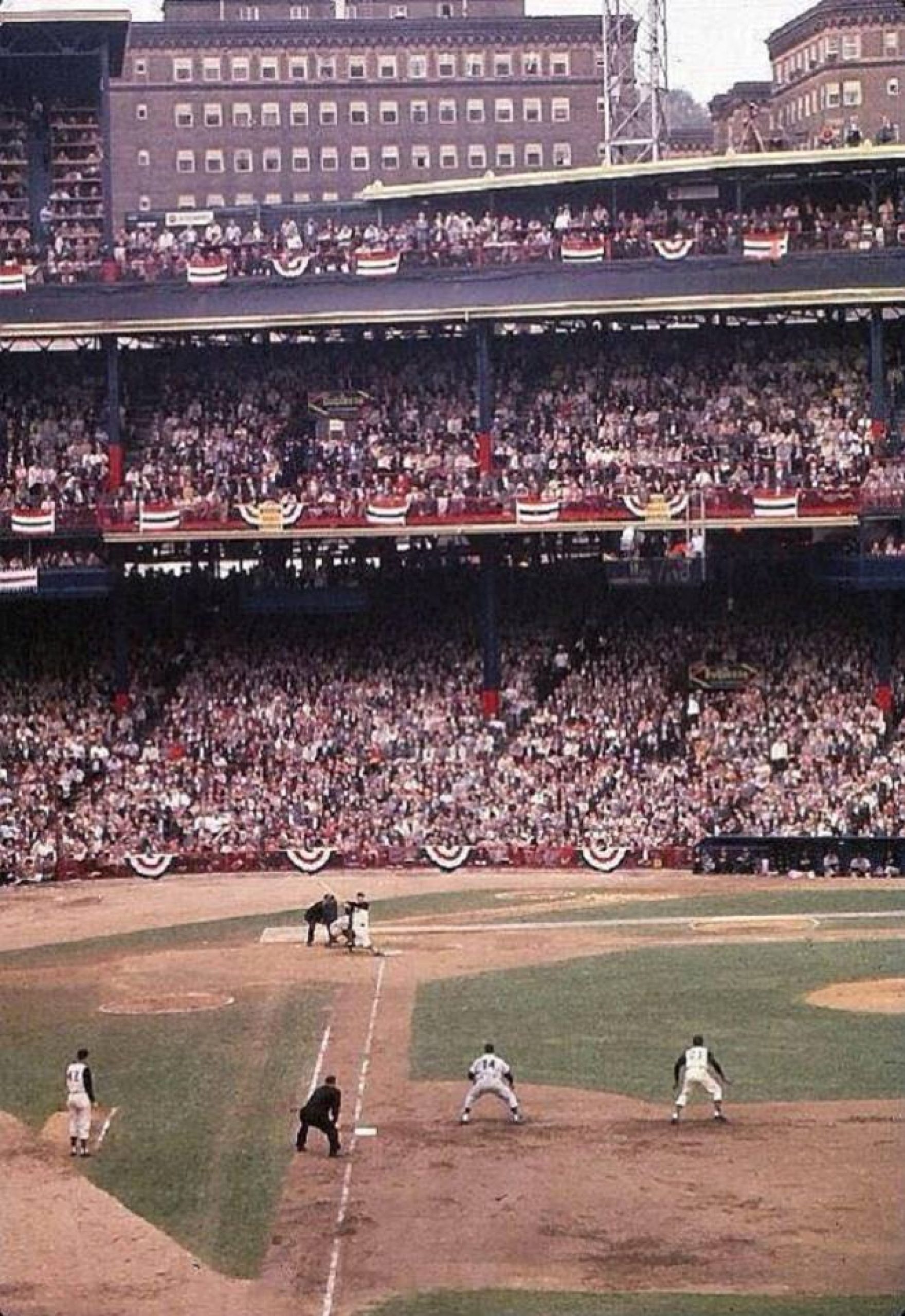
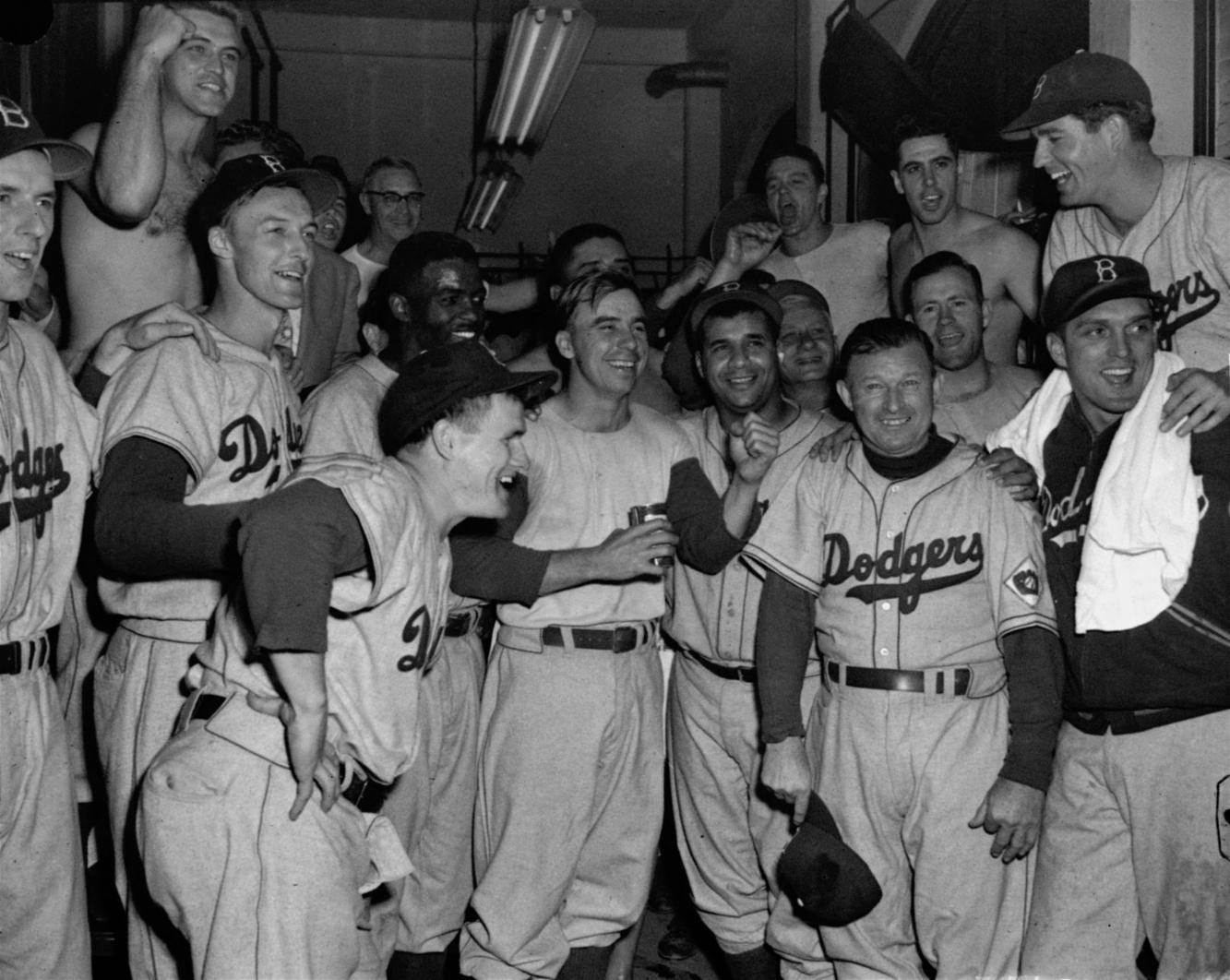
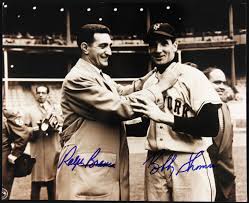
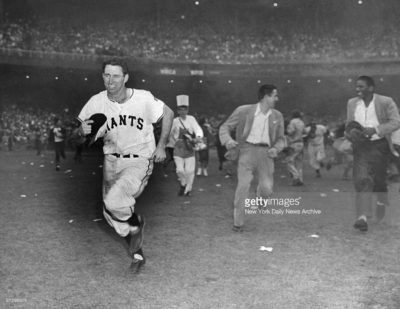
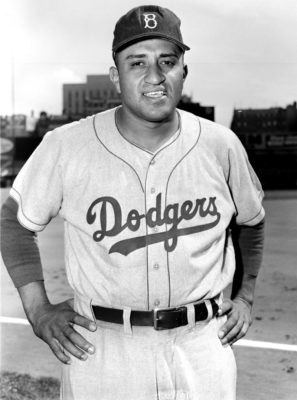
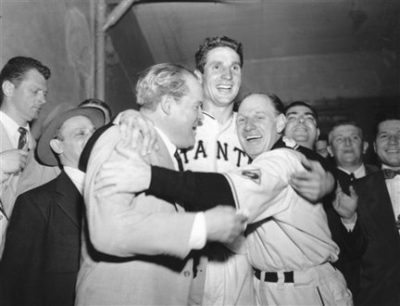
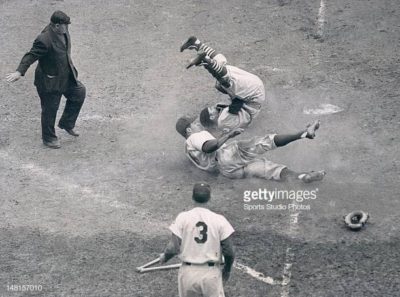
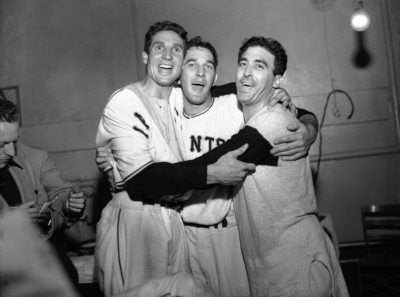
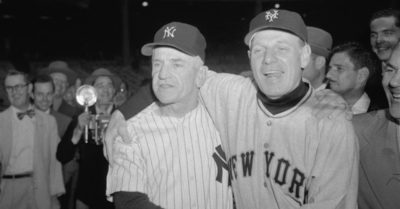
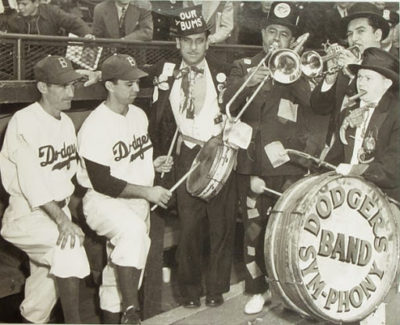
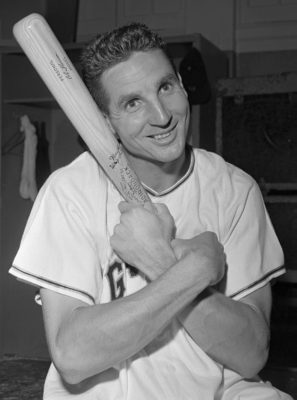

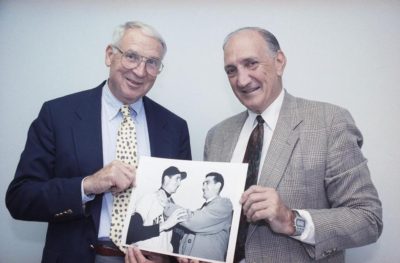
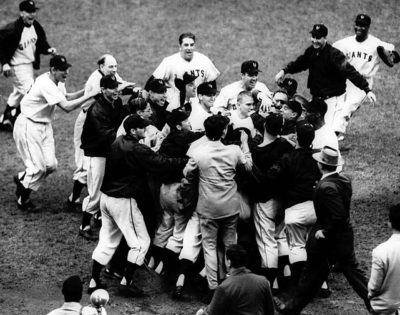
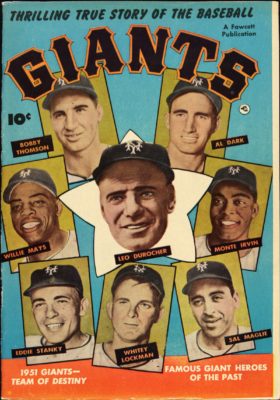
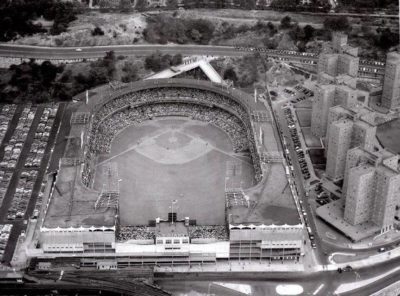
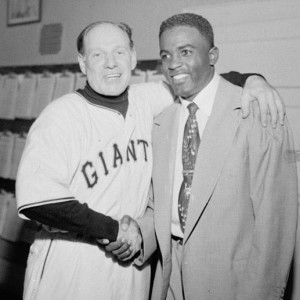
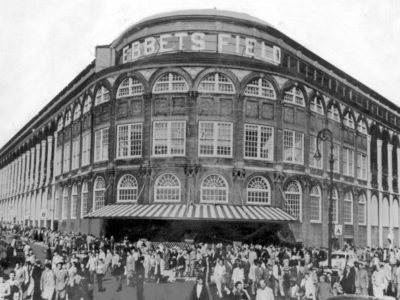
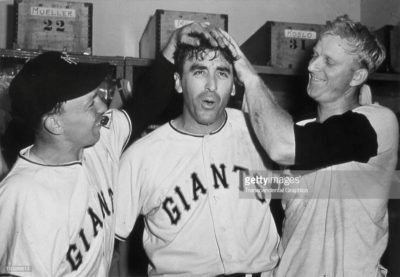
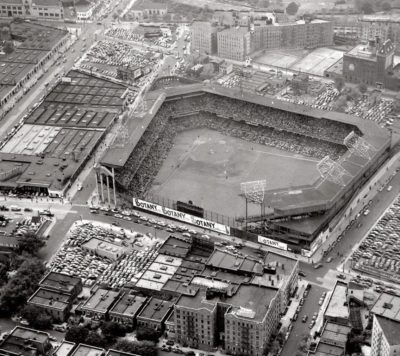
That was my very first memory of baseball. I was 6.
What a great story!
Thank you for the edification and for debunking the disparaging of the 1951 New York Giants baseball team. (And yes, even Jackie knew he had trapped the ball, otherwise why the desperate toss to second base?) This article is a keeper for me, to file with the WSJ article of almost seven years ago which revealed the alleged cheating of the Giants!
Thanks, Ron and Ken, for chiming in. I was 13, and hung on every pitch that year. I was furious with Robinson for forcing an unwanted playoff. But recognized that he was the greatest competitor I ever saw.
Thanks so much, Joseph, appreciate the comment!
Thanks very much for your article! Really enjoyed it.
Well done Bill S. Thanks for a good story.
Mark
Hope you’re doing good Mark, thanks.
Supe 57 should be a dandy, if the officials don’t “official” too much. Mahomes pulls it out by two points? His dad pitched for the Mets briefly.
Two seasons with the Mets in 1999 and 2000 seasons in which he went for a total record of 13-4. Eleven years in the bigs!
Yes, I was amazed to find he went 8-0 in 1999!
What a great article. I never even thought about what came before the “Shot Heard Round the World”. What an incredible game, 14 innings, and such heroics by Jackie Robinson! I’m sure if there were replay challenges back then there would have been a huge delay only to determine that there was insufficient evidence to overturn the call on the field.
This great article by Dr. Schaefer resurrects the very definition of “ambivalence.” For dedicated Jints fans, Jackie’s heroic plays in extra innings on the final day of the regular season had to be excruciating at the time, but of course they led promptly to “Dat Day,” the saddest of all for the Borough of Brooklyn and all who lived and died with their star-crossed shoulda-coulda-wouldas in the 1950s.
Seventy-plus years after the fact, I’ll wager these teams and their most rabid fans wouldn’t have had it any other way. But a mere forty or fifty years later. . .I’m not so sure about the long-suffering Boys of Summer! Maybe, like a certain eight-year-old back in ’51, they’d have preferred to play 154 and go home.
At any rate, Lady Luck couldn’t have scripted things much better when it comes to tension, drama, triumph, heartache, and the old second guess — and the same is certainly true of our gifted and favorite scribe here.
Thanks, Wilhelm! I think.
Regards,
Michael
Thanks so much, Steve and MK!
You’re right, Steve, in a primitive replay system they might have deemed the evidence inconclusive. But the effort by Robinson re-enforces the fact that he was one of the greatest competitors, ever.
Mick,
My best friend, four years older than me, was as great a Brooklyn fanatic as you were. As you indicate, the agony suffered by Dodger fans was beyond unimaginable. First, they were treated to a July fourth sweep of their bitter rivals and extended their first place lead over the Giants from 4.5 to 7.5 games. Then pounded them in subsequent meetings, building to 13.5 midway through August 11. Then saw New York win 16 straight and 37 of 44 to tie–Jackie saved the day against Philadelphia…well, you get the idea. As cruel a roller coaster ride as any in the history of fandom. (no, I never taunted my Dodger buddy, for which he was most grateful)
Had the Giants lost, my dad and I might have jumped! The World Series vs the Yankees was totally anti climactic. I wasn’t really into it until the ninth inning of game six, when Sal Yvars lined out to Hank Bauer to end it. The Giants pitchers just plain ran out of gas.
Best,
Clint “The Hondo Hurricane” Hartung
I hope this is not a duplicate of a comment I just wrote that seems to have disappeared. Anyway, I think I now have the answer to my long-time unanswered question of why Jackie Robinson was moved from second base to third base when Jim Gilliam joined the team. I wasn’t sure whether that was a promotion or demotion. I had not heard that he was “notoriously slow” going to his right, which seems to explain it. His “slowness” is not consistent with his having been a great all-around athlete, and I suspect that his big weight gain after his 1949 MVP season was a factor in slowing him up. He must have gained 30-40 pounds between his rookie year and 1951. But I’m left wondering why he was moved from third base to left field. Perhaps his weight gain was also a factor there.
Thanks Mike…maybe Bill will weigh in on this one.
Thanks for a great comment, Mike. You’re right about the weight gain. Actually, the “slow going to his right” was my observation watching him against the Giants in a 1950 game at the Polo Grounds. Hank Thompson hit a 20-hopper up the middle off Dodger pitcher, lefty Chris Van Cuyk. Jack was so slow getting to it, before it dribbled into CF, you could have kept a diary of the trip (Ha, Ha).
But I checked it out subsequently with a die hard Dodger fan, and a writer who covered the team and they agreed with me, absolutely. It was not publicized. I mentioned it in the piece, because in the moment of truth, do or die, Robinson overcame his deficiency and rose above his ability. A tribute to his remarkable competitiveness in the most clutch situation.
And, yes, his weight gain and consequent slower reaction time at the “hot corner” was the reason for the move to left field.
Best, Bill